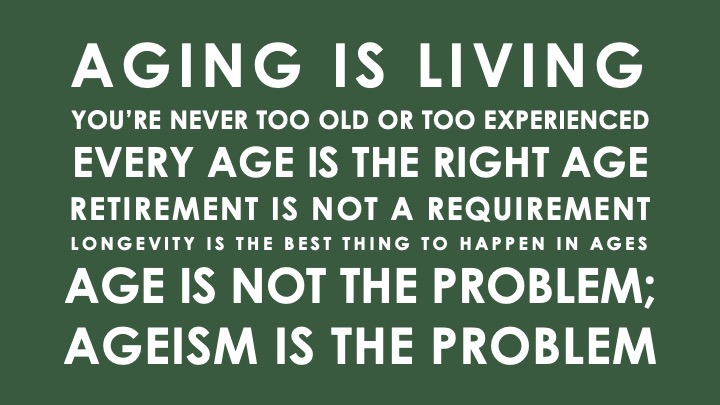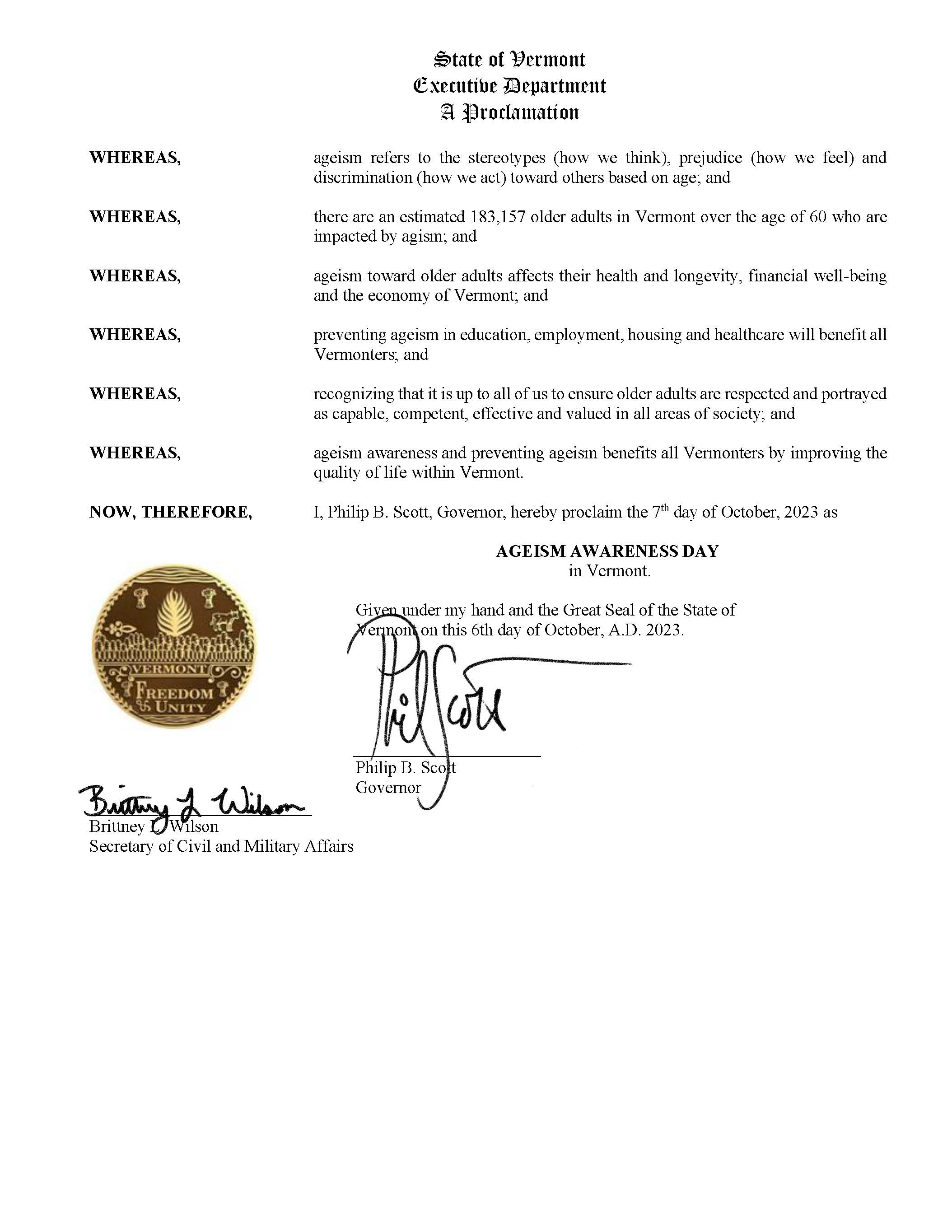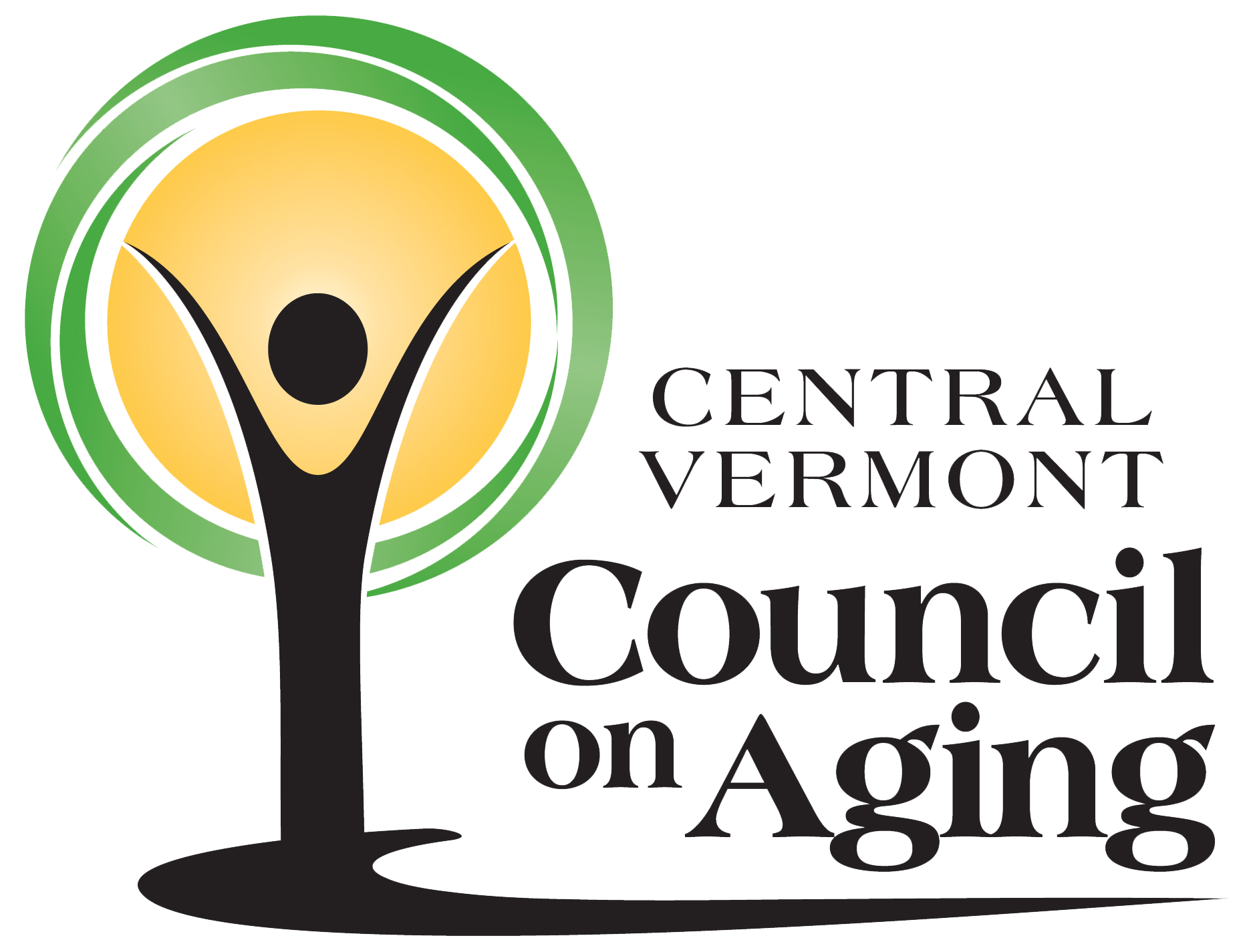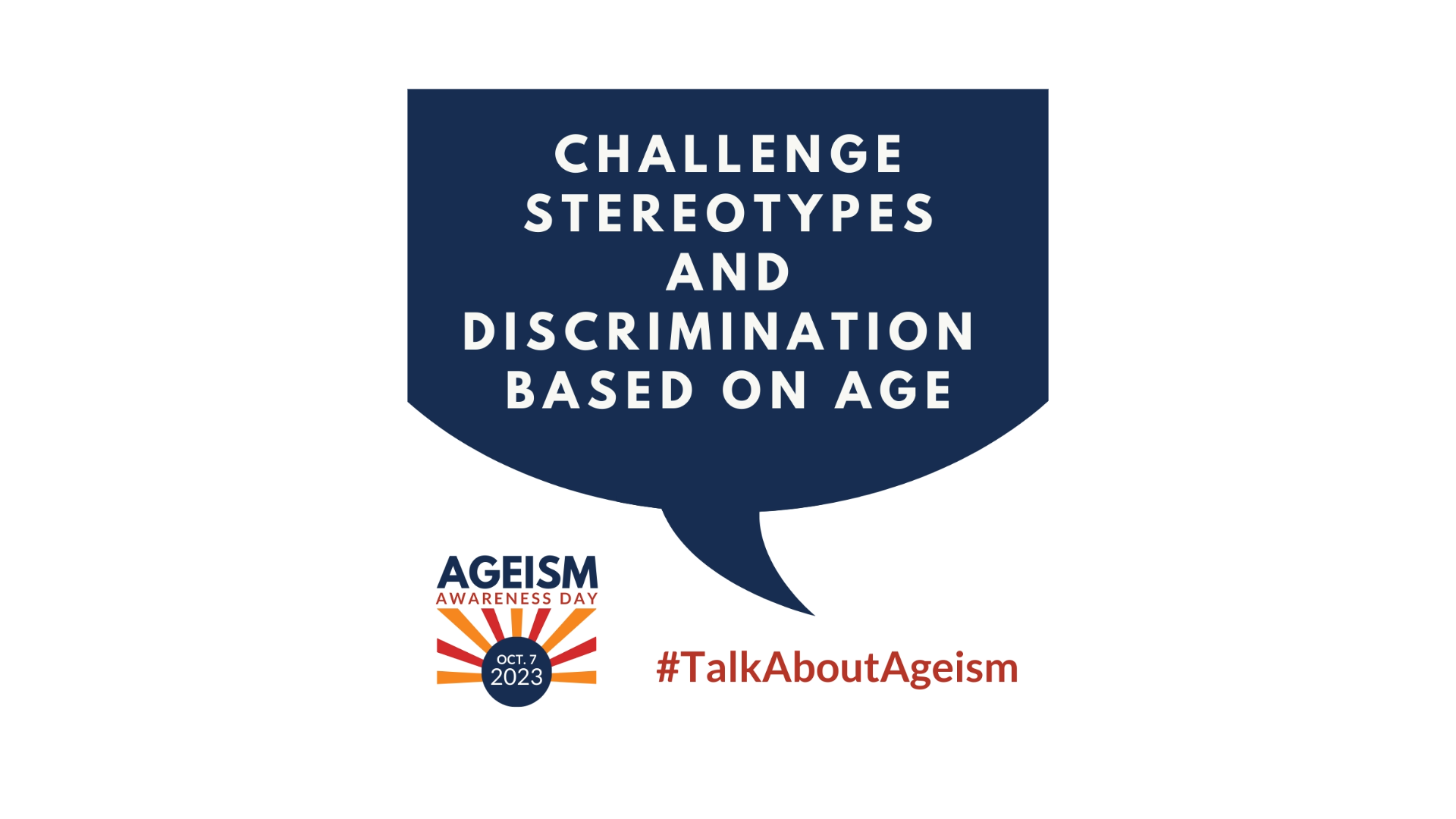Ageism Awareness Day 2023
October 7th, 2023 marks the 2nd annual Ageism Awareness Day, sponsored by the American Society on Aging, with a goal of increasing understanding about this important issue and advocating for a society that respects, values, and celebrates people of all ages.
Here’s a definition to start: Ageism refers to how we think, feel, and act towards others and ourselves based on one's age or perceived age. It can manifest as internalized attitudes and beliefs, interpersonal behavior and prejudice, and even overt interpersonal or institutional discrimination. Ageism is widespread in our culture and systems, and harmful on many levels. Ageism also intersects with and compounds racism, sexism, ableism, and discrimination against LGBTQ+ older adults.
Maybe you’ve never thought about ageism, but odds are you’ve felt the impacts. People of all ages experience ageism, youngers and olders being the likeliest to feel the sting. While ageism can occasionally manifest in positive ways, the lion’s share of ageist thoughts, messages, actions, behaviors, and systems that we encounter daily are negative stereotypes that impact us and those around us.
Ageist stereotypes are often internalized early in life. Children as young as 3 have already learned negative age stereotypes, which are then reinforced through media, culture, institutions, and personal interactions throughout their lifetimes. It’s no surprise that children learn these stereotypes when negative depictions of older adults in the media outweigh positive ones by six times.
While there has been some progress in journalism, film, and marketing, ageist stereotypes still abound. For instance, there remains a very robust “anti-aging” product industry that is widely marketed. These “anti-aging” products are masking deep-rooted ageist stereotypes that venerate youthfulness and denigrate older adults as being unwanted, unworthy, and ugly. These stereotypes in media are prevalent and insidious.
The media isn’t all to blame, though. All of us as individuals perpetuate ageist thinking and attitudes, often unconsciously. There are plenty of common sayings that are indicative of our internalized ageism. Think of the phrase, “senior moment,” as in, “I had a senior moment today when I lost my car keys.” At 37 years old, I think I’ve lost my car keys at least once a year since I started driving. Were those “senior moments?” Of course not — I’m just generally not great at keeping track of my car keys! By calling those events “senior moments,” we are equating growing older with forgetfulness, neglect, decline, etc. Those are ageist thought patterns that are nearly universal due to internalized stereotypes learned early in life.
Those unconscious biases we learn early in life can have significant impacts on our health and financial well-being. Recent studies from Dr. Becca Levy and colleagues at Yale University have shown that older individuals with more positive self-perceptions of aging live 7.5 years longer than those with a less positive self-perception of aging. Older adults often face longer periods of unemployment, discrimination in the hiring process, and fewer professional development opportunities. AARP estimated $850 billion in lost gains to the Gross Domestic Product (GDP) as a result of involuntary retirement, underemployment, and unemployment among older workers. And, Levy and colleagues (2020) estimated that in just one year, $63 billion in healthcare costs were due to ageism.
While these numbers are eye-opening, it’s the personal stories of ageism that really hit home. At a community event recently, an older woman approached me after reading our Aging is Living sign (see image below), and said, “You know, once I hit 50, it was like a switch flipped. Suddenly people stopped listening to my ideas. I was constantly overlooked at work. It was like I became invisible. Like I no longer mattered.” Unfortunately, this is a common refrain.
We’ve only just begun to understand the impacts of ageism on our individual health and well-being, and more widely in areas like healthcare and employment throughout Vermont. As Vermont’s population continues to age, it is vital that ageism and related impacts are at the top of our minds. By 2030, 1 in 4 Vermonters will be age 65 and older. This is not alarming; this is an opportunity for Vermont to shine as an age-friendly state and for Vermonters to show we value the joys of growing older while recognizing and supporting the challenges. Our approach to designing towns, systems, social services, and more will be a reflection of those values.
So, what are some practical ways that we can all celebrate aging, combat ageism, and put our personal values into practice? The next time you purchase a birthday card, pass on that jab about getting older and instead consider the impact of your message on the health and well-being of both yourself and the recipient (check out these anti-ageism greeting cards!). The next time your employer questions a candidate’s technology skills because of their age, speak up! The next time you are browsing for a new TV show or film to watch, choose an option that features a diversity of older characters and honors their individuality. The next time you hear those media messages about the “gerontocracy,” have an intentional conversation with your family and friends about ageism. And the next time you lose your car keys, don’t blame your obliviousness on an arbitrary age marker that you have no experience of — install a new key hook instead.
Join me in honoring Ageism Awareness Day — let’s talk about ageism and celebrate growing older together!
 Image credit: Margaret McDonald, Source: Age Liberation: It's Time! article.
Image credit: Margaret McDonald, Source: Age Liberation: It's Time! article.


 -1-.png)
